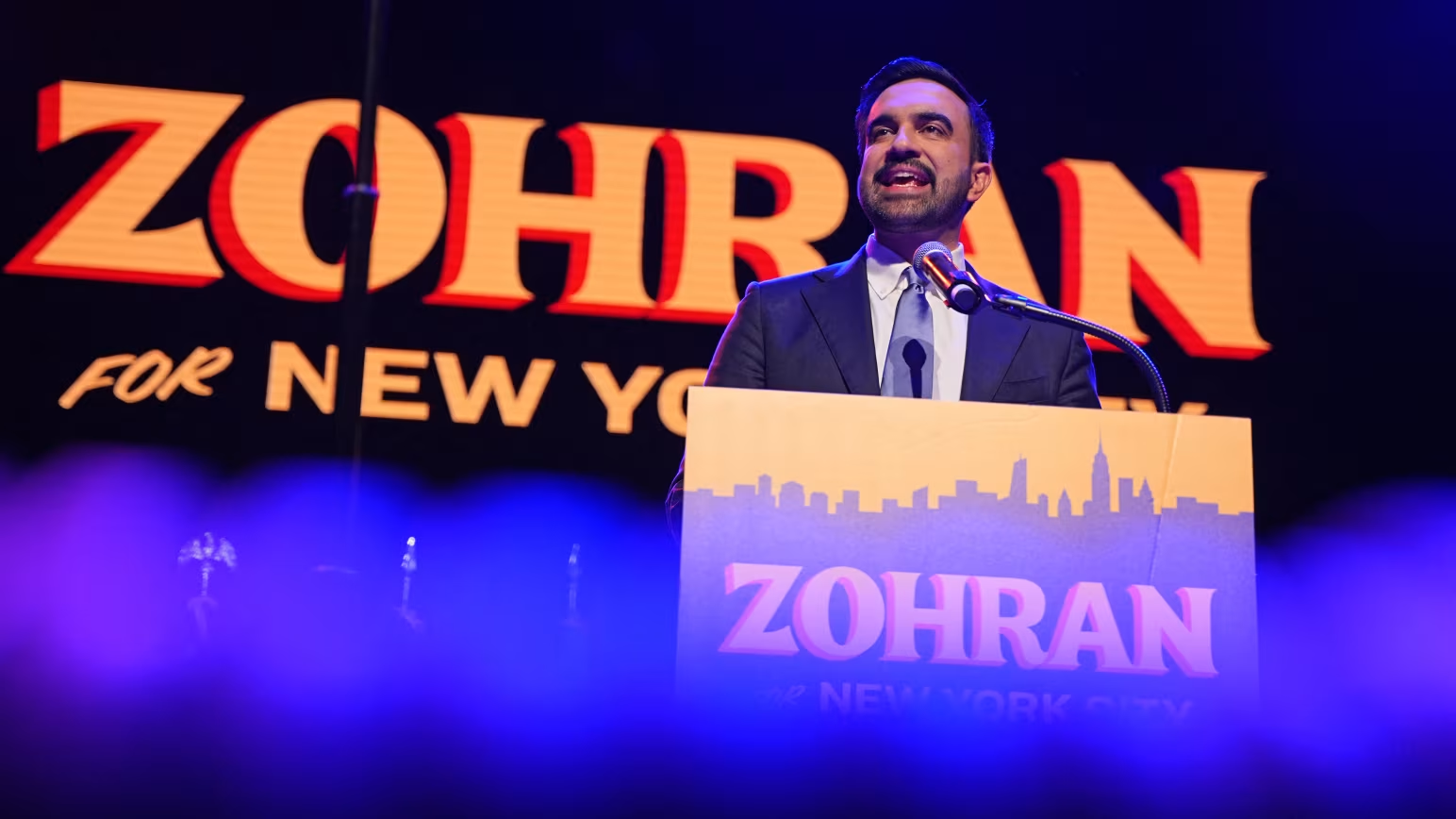Zohran Mamdani’s historic election as the first South Asian and Muslim mayor of New York City has sparked waves of celebration across the Indian diaspora — while simultaneously reviving tensions tied to his outspoken criticism of Indian Prime Minister Narendra Modi.
The 33-year-old politician, the son of Indian-origin immigrants, marked his groundbreaking win with a speech that blended political conviction and cultural pride. Quoting Jawaharlal Nehru’s “Tryst with Destiny” and leaving the stage to the Bollywood anthem “Dhoom Machale,” Mamdani symbolized a new generation of diaspora leadership — one that celebrates identity while challenging the establishment.
“I am young. I am Muslim. I am a democratic socialist. And most damning of all, I refuse to apologize for any of this,” he declared to thunderous applause.
Mamdani’s life story is one of continents and cultures: born in Uganda to Indian parents, raised in South Africa, and now representing one of New York’s most diverse boroughs, Queens. His parents — Mahmood Mamdani, a renowned Columbia University scholar of post-colonial studies, and Mira Nair, the celebrated Indian filmmaker behind “The Namesake” and “Monsoon Wedding” — helped shape his worldview rooted in justice, equality, and pluralism.
Yet, while his election has been hailed as a moment of South Asian pride, it has also reignited controversy in India due to his fractured relationship with Prime Minister Modi. A fierce critic of the Bharatiya Janata Party (BJP), Mamdani has condemned what he calls the government’s Hindu nationalist agenda and its treatment of minorities.
He has publicly opposed the Citizenship Amendment Act (CAA) and the revocation of Article 370 in Jammu and Kashmir, both of which he views as discriminatory. He has even gone as far as to label Modi a “war criminal” for his alleged role in the 2002 Gujarat riots, where more than 1,000 people — mostly Muslims — were killed.
His remarks have drawn fierce backlash from BJP officials. Party spokesperson Sanju Verma branded him “a Hinduphobic bigot,” while actor-turned-politician Kangana Ranaut accused him of “sounding more Pakistani than Indian.”
Despite the criticism, Mamdani’s supporters — including organizations like Hindus for Human Rights — argue that his courage to challenge Modi’s policies strengthens democratic dialogue. “He’s showing that being proud of your heritage doesn’t mean staying silent about injustice,” said Ria Chakrabarty, the group’s policy director.
Political observers say Mamdani’s new role as mayor of the world’s most influential city gives him an international platform — and potentially more leverage in shaping global conversations about democracy, human rights, and the Indian diaspora’s identity.
In India, reactions remain divided. For many, Mamdani’s success is a source of pride. “We are a country of leaders,” said Gulfam Khan Hussain from Mumbai. “Mamdani’s win is another feather in India’s already colorful cap.”
For others, his rise serves as a reminder that India’s diaspora is evolving — and that its newest political star has no intention of mending his rift with the country’s most powerful leader.

